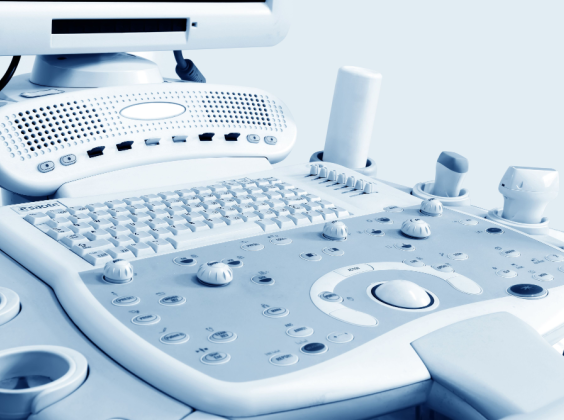
Written by

Boston Imaging, the US headquarters for sales, marketing, and distribution of all Samsung Medison’s digital radiography and ultrasound systems, has experienced a flurry of changes in the last year. The company rebranded in February 2022, previously being known as Samsung Neurologica. This rebranding only impacted the ultrasound and digital radiology divisions and was not extended to CT. Whilst this may appear a disjointed approach from an imaging perspective, the noticeably smaller size of Samsung Medison’s CT business, which is primarily in Asia, justifies this decision. In October 2022, the company announced the segmentation of its ultrasound division, a sign of Samsung Medison’s increased investment into its North American business. The split, aimed to better accommodate its customers’ growing needs, will provision divisions dedicated to women’s health ultrasound and to general imaging, point of care and veterinary ultrasound.
America’s Most Trusted Boston Imaging
Whilst Samsung Medison is one of the largest global ultrasound vendors, with Signify Research’s Ultrasound Equipment – World – 2022 report ranking the company as the 8th largest global vendor, its presence in the North American market is limited. As the US is the largest ultrasound market globally, this presents a sizeable opportunity for Samsung Medison to expand its global market position.
The rebranding of Samsung Neurologica to Boston Imaging was claimed to give it a more dedicated focus for business expansion in the US and reinforce the strength of its legacy. This would be achieved by giving the company a name which can be better associated with the US, and differentiating from the Apple and Samsung rivalry seen in the mobile phone market to enable the strengths in its product portfolio to be showcased. However, the establishment of a new brand is not an easy endeavour and will require substantial funds and resources to succeed. By splitting its ultrasound division, Samsung Medison is showing that this is a price it is prepared to pay.
Another challenge Boston Imaging will face in the US market is strong brand loyalty, where even a more local company name may not be enough to persuade customers to switch vendors. What will help win customers is the systems’ image quality and ergonomics. With most leading vendors on a fairly level playing field with both of these, other system features, such as AI and other digital capabilities, will become increasingly important in the coming years. Aside from GE HealthCare, who has partnered with Intelligent Ultrasound to incorporate its ScanNav Assist AI solution into its Voluson Expert 22 and Voluson SWIFT systems, Samsung Medison is the most progressive ultrasound OEM for AI in women’s health ultrasound. Samsung Medison has its Intelligent Assist tools including . It also offers SonoSync, a real-time image sharing solution between physicians and sonographers at different locations.
With healthcare providers addressing the post COVID-19 patient backlog and investing in efficiency solutions to reduce the burden on healthcare workers, these offerings from Samsung Medison could entice customers to switch from vendors who do not currently offer the same image quality, ergonomics or digital solutions with its systems.
Doubling Down on its Key Markets
Through its two most recent product introductions, the V8 and V7, Samsung Medison has shown an increased focus on the shared service market. Whilst shared service systems are a growing trend in ultrasound, particularly in countries like China, it is a less mature trend in the US. Whilst there is a market for shared service systems in the US, for instance hospitals with restricted budgets and those in rural areas, the US market still has a preference for departmental products, with specialised systems for each clinical application.
With general imaging and women’s health being the two dominant applications in Samsung Medison’s ultrasound portfolio, it is no surprise that these are the two clinical applications of focus following the segmentation of its ultrasound business. This move makes the Boston Imaging business structure more akin to the other big players in the market, such as GE HealthCare, the dominant leader in the North American women’s health ultrasound market and market leader overall, who has separate divisions for each major ultrasound clinical application. With Tracy Bury now leading Boston Imaging’s Women’s Health division, bringing with her five years of experience running the Women’s Health ultrasound division at GE Healthcare, Boston Imaging is in a position to better understand and address the clinical needs of its own and its competitors’ customers in the US market. The expertise the company will gain by having its own women’s health division, will allow it to focus its ultrasound product development for the North American market, increasing the chances of a more successful establishment of its ultrasound portfolio in the US. This has already begun, with Boston Imaging introducing the HERA W10 Elite in February 2023, with Advanced MV-Flow, a new EV2-12 transducer (FDA 510(k) pending) and a larger OLED display compared to the Hera W10.
The Signify View
Samsung Medison has been pushing hard in the ultrasound market recently, which has seen it gain market share in other regions, such as in Western and Eastern Europe. It has not only talked the talk in wanting to invest more in its North American ultrasound business, but it has also walked the walk by segmenting the ultrasound division of Boston Imaging, a clear sign of its ambitions in the North American market.
The recent changes are not going to immediately trouble the established vendors in North America such as GE HealthCare, Philips and Fujifilm SonoSite. Philips and Fujifilm are predominantly active in the cardiology and point of care ultrasound markets respectively, not key target areas for Boston Imaging. GE HealthCare is the dominant leader in the women’s health ultrasound market and its significant installed base means that, in the near term, it is unlikely to be threatened by Boston Imaging. However, other smaller vendors, especially those active in general imaging and women’s health, will undoubtedly be looking over their shoulders. With its scalability and reach, Samsung Medison clearly has the potential to have a much larger presence in the North American market, having ten times the global ultrasound revenues than some of the vendors it is currently next to in the vendor rankings list. Whilst vendors like Mindray have shown impressive growth in the North American market, amidst business challenges brought on by sanctions arising from the strained relationship between the US and China, as a South Korean vendor, Samsung Medison is able to avoid such pitfalls.
The North American market is one with considerable potential for Samsung Medison. Whilst there will be challenges in establishing its new Boston Imaging brand, the recent changes in its ultrasound business show not only its intent to become a much bigger fish in the huge ocean that is the North American ultrasound market, but also how it wants to achieve this.
About Signify Research
Signify Research is an independent supplier of market intelligence and consultancy to the global healthcare technology industry. Our major coverage areas are Healthcare IT, Medical Imaging and Digital Health. Our clients include technology vendors, healthcare providers and payers, management consultants and investors. Signify Research is headquartered in Cranfield, UK. To find out more: enquiries@signifyresearch.net, T: +44 (0) 1234 436 150, www.signifyresearch.net
More Information
To find out more:
E: enquiries@signifyresearch.net
T: +44 (0) 1234 986111